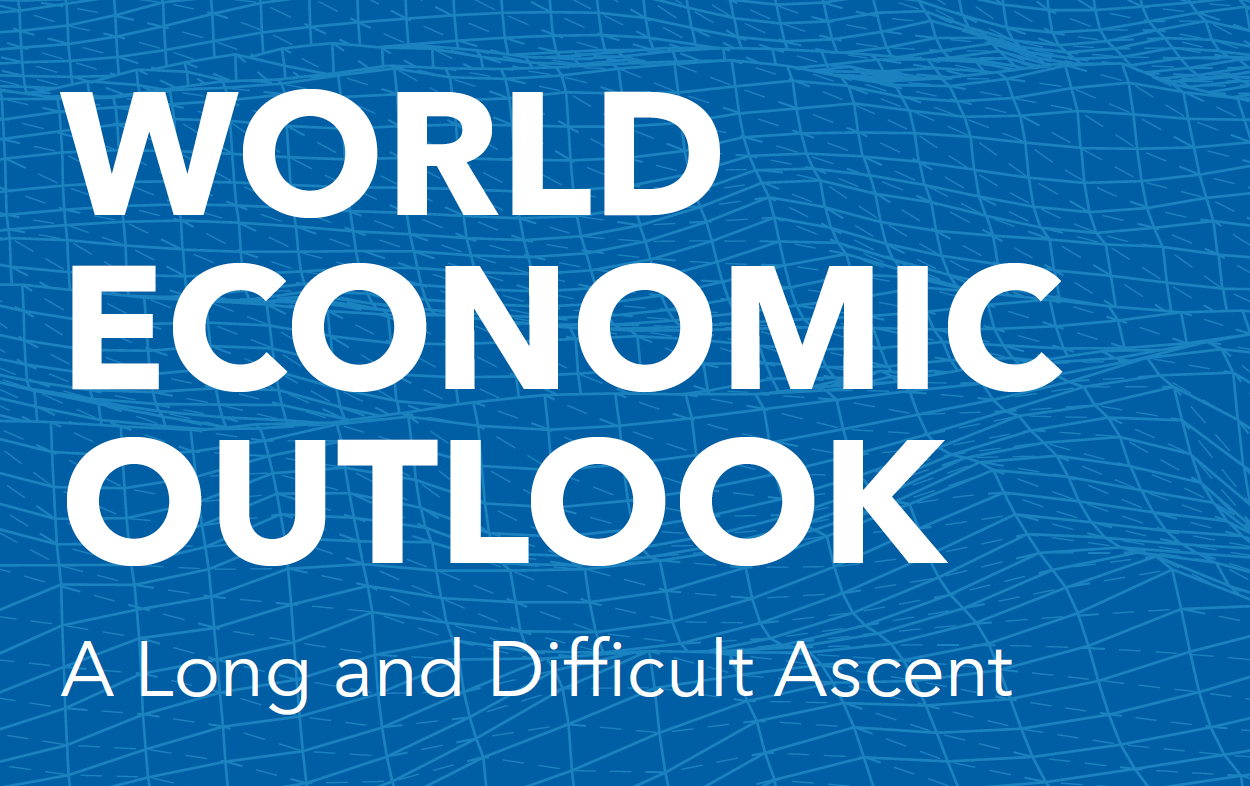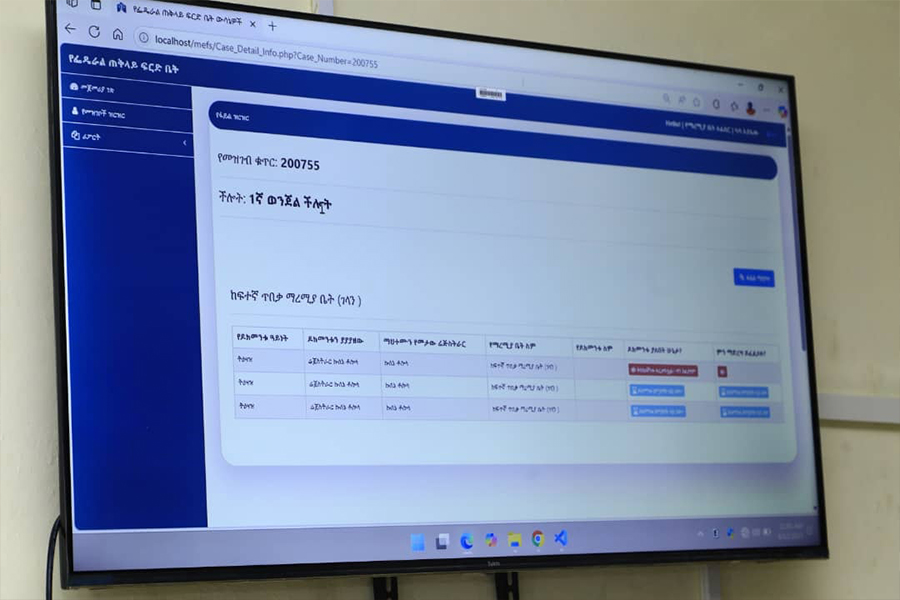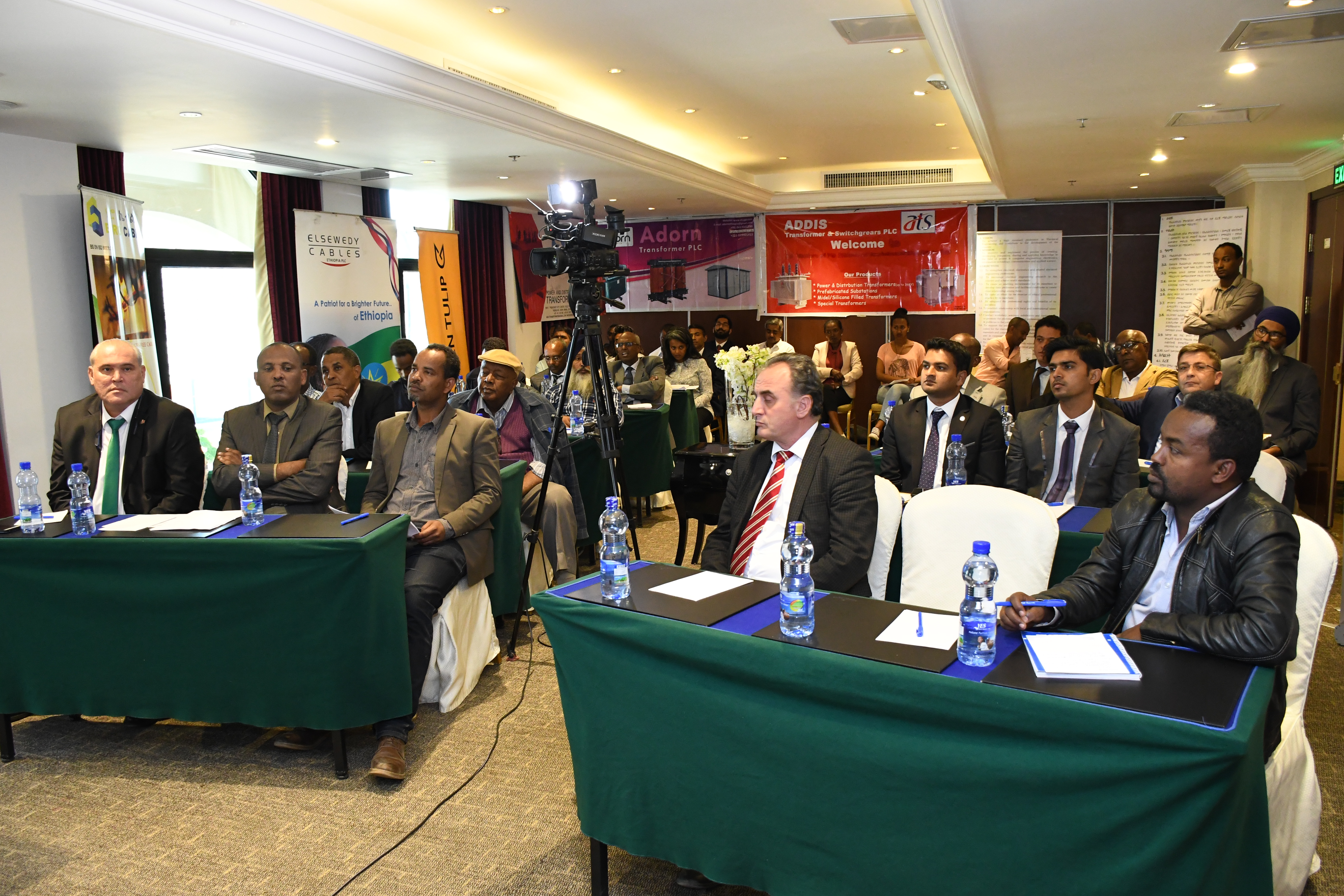
Covid-19 | Oct 13,2020
With growing concern at the spread of Novel Coronavirus (COVID-19), the Ethiopian Bankers Association, a consortium of commercial banks, has formed an ad-hoc committee that will work on lessening the impact of the virus on the industry.
The new committee, which was formed two weeks ago with one member from every bank for a total of 18, is working on preparing guidelines for the banks to use in their daily operations.
Employees of banks working in the finance department, messengers delivering cheques and bank tellers are highly exposed to the virus. So far, employees working at over half of the banks have contracted the virus. Tellers, security guards, branch managers and messengers are among those who have tested positive. Now, the bank executives are taking action.
The committee, which held its first meeting last week, has outlined the working pillars of the plan, which include guidelines for the safety of employees, customer service and corporate social responsibility. After the first meeting, the chair of the committee sent a questionnaire for the commercial banks to reflect on what kinds of measures they have taken so far. Many of the banks have already responded with preventative measures and crafted stimulus packages for various sectors.
Ever since the virus first arrived in the country, banks had been organising a committee that observes the ramifications of the spread of the virus and suggests counter measures. Most of the banks have raised the cash withdrawal limits on ATMs to minimise the necessity of customers arriving at branches. They have also waived fees on ATM transactions.
"We're supplying sanitiser, soap, gloves, masks and other necessary protective gear to every branch and head office," said Wondoessen Teshome, president of Enat Bank.
After going through the replies of the banks, the committee will create a draft of its guiding principles and table it to the board of the Association for approval, according to an official statement from the Association.
Part of the ad-hoc committee's job is to devise a plan that allows bank management to work remotely at their homes without affecting operations in order to prevent the deaths of top executives, according to the same statement from the Association.
"The committee will also look for a real-time solution to handle cheques," he said.
Following the directive that changed the daily cash withdrawal limit, cheque transactions have increased at banks. Last month, the central bank limited the daily and monthly cash withdrawal to 300,000 and one million Birr, respectively. It also restricted the amount businesses can withdraw each day to 300,000 Br and 2.5 million Br a month.
Recently, the National Bank of Ethiopia sent out a circular to all commercial banks requiring them to temporarily shut down any branch location that was exposed to the virus. The banks should ensure service is provided at a nearby branch until all staff members get tested, and the necessary disinfection is carried out at the specific branch.
The banks are also required to report to the central bank at the time of the incident and the subsequent reopening of the branch as well.
The most effective and easy way is for customers as well as the public to wash their hands after handling money at any time, according to Tadele Bogale (MD), a public health expert at Family Health International 360.
"There is no warning about using banknotes or cheques as long as people wash their hands immediately afterward," said Tadele.
The banks, as major economic institutions in the country, need executive succession plans during the COVID-19 pandemic, according to Abdulmenan Mohammed, a financial expert with close to two decades of experience.
The plan should include the list of the executives who will replace the existing senior managers of the banks if the pandemic affects bankers, according to Abdulmenan.
"The plan should also include scenarios for the foreseeable future," he said. "The governing bank should demand the banks prepare succession plans as the Central Bank of Kenya recently did."
PUBLISHED ON
Jun 20,2020 [ VOL
21 , NO
1051]

Covid-19 | Oct 13,2020

Covid-19 | Apr 03,2020

Radar | Oct 24,2020

Fortune News | Jul 19,2025

View From Arada | Jun 14,2025

Radar | May 02,2020

Fortune News | Apr 16,2022

Radar | Sep 26,2021

Radar | Oct 19,2019

Fortune News | Aug 21,2021

Dec 22 , 2024 . By TIZITA SHEWAFERAW
Charged with transforming colossal state-owned enterprises into modern and competitiv...

Aug 18 , 2024 . By AKSAH ITALO
Although predictable Yonas Zerihun's job in the ride-hailing service is not immune to...

Jul 28 , 2024 . By TIZITA SHEWAFERAW
Unhabitual, perhaps too many, Samuel Gebreyohannes, 38, used to occasionally enjoy a couple of beers at breakfast. However, he recently swit...

Jul 13 , 2024 . By AKSAH ITALO
Investors who rely on tractors, trucks, and field vehicles for commuting, transporting commodities, and f...

Oct 4 , 2025
Eyob Tekalegn (PhD) had been in the Governor's chair for only weeks when, on Septembe...

Sep 27 , 2025
Four years into an experiment with “shock therapy” in education, the national moo...

Sep 20 , 2025
Getachew Reda's return to the national stage was always going to stir attention. Once...

Sep 13 , 2025
At its launch in Nairobi two years ago, the Africa Climate Summit was billed as the f...